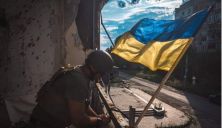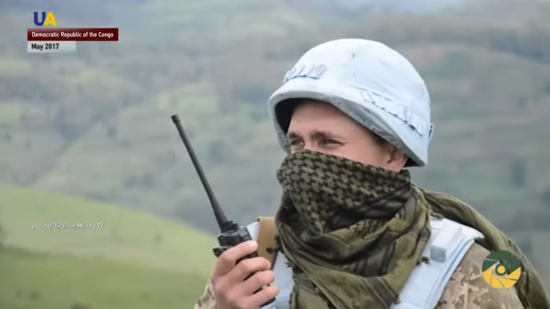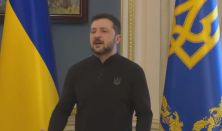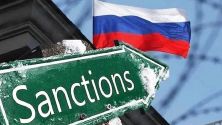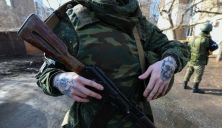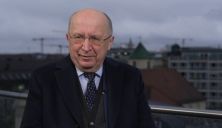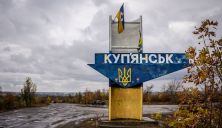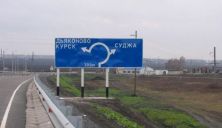At that time, the civil war in Yugoslavia was the bloodiest conflict in Europe since World War II. The Ukrainian contingent arrived there to stop the fighting and provide humanitarian assistance to civilians. Savchenko commanded a mechanized platoon of armored personnel carriers.
“We had to provide an escort for convoys with humanitarian aid, and guarded and transported brigades that repaired power lines, gas and water pipelines. We had the right to open fire in response, but we never did,” Savchenko said.
He describes how the Ukrainian blue helmets successfully fulfilled their UN assignment.
“Our first trip abroad was very unusual and very strange. But we were treated quite warmly. For example, we had a wonderful relationship with Canadians. Then our contingent replaced their battalion, which was leaving Sarajevo. For the first time, we saw with our own eyes how countries cooperated,” Savchenko said.
Nadiia Novoselska went to war-ridden Yugoslavia in 1994. At that time, female soldiers were not included enthusiastically into military contingents for peacekeeping missions. However, she defended her right before the military command and became a peacekeeper.
“I began to be interested and understood that I could do that too. There was a war, there was shooting. But I understood perfectly well that I could be useful there. I am a medic, and a medic is useful everywhere. They needed a scrub nurse. I took courses and received a certificate,” Novoselska said.
She is convinced that peacekeepers must not give preference to any side of a conflict. Their main task is to stop the violence and to help people.
Over the years of Ukraine’s independence, more than 44,000 Ukrainians have been peacekeepers. According to the Ministry of Defense, 55 soldiers have been killed during their missions. Ukraine’s contingent is now keeping the peace in Kosovo, the Democratic Republic of the Congo, and the Ivory Coast.
